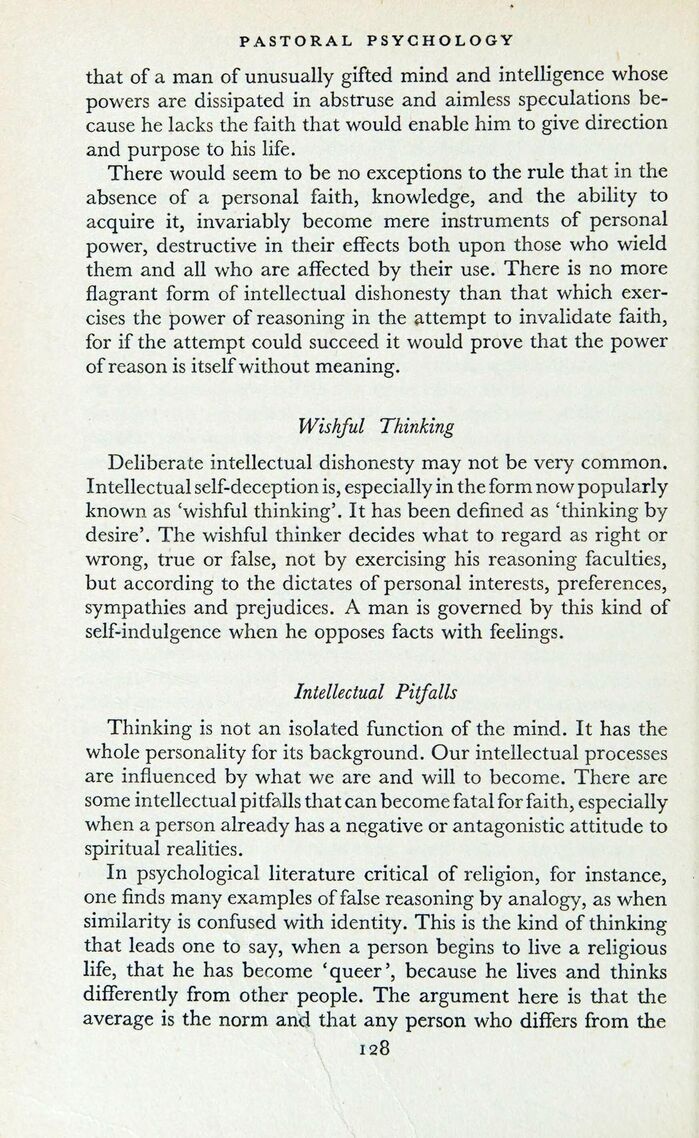
Full resolution (JPEG) - On this page / på denna sida - Part 3. The Psychology of Unbelief - 5. Religion and Self-Deception - Intellectual Dishonesty - Wishful Thinking - Intellectual Pitfalls

<< prev. page << föreg. sida << >> nästa sida >> next page >>
Below is the raw OCR text
from the above scanned image.
Do you see an error? Proofread the page now!
Här nedan syns maskintolkade texten från faksimilbilden ovan.
Ser du något fel? Korrekturläs sidan nu!
This page has never been proofread. / Denna sida har aldrig korrekturlästs.
PASTORAL PSYCHOLOGY
that of a man of unusually gifted mind and intelligence whose
powers are dissipated in abstruse and aimless speculations
because he lacks the faith that would enable him to give direction
and purpose to his life.
There would seem to be no exceptions to the rule that in the
absence of a personal faith, knowledge, and the ability to
acquire it, invariably become mere instruments of personal
power, destructive in their effects both upon those who wield
them and all who are affected by their use. There is no more
flagrant form of intellectual dishonesty than that which
exercises the power of reasoning in the attempt to invalidate faith,
for if the attempt could succeed it would prove that the power
of reason is itself without meaning.
Wishful Thinking
Deliberate intellectual dishonesty may not be very common.
Intellectual self-deception is, especially in the form now popularly
known as ‘wishful thinking’. It has been defined as ‘thinking by
desire’. The wishful thinker decides what to regard as right or
wrong, true or false, not by exercising his reasoning faculties,
but according to the dictates of personal interests, preferences,
sympathies and prejudices. A man is governed by this kind of
self-indulgence when he opposes facts with feelings.
Intellectual Pitfalls
Thinking is not an isolated function of the mind. It has the
whole personality for its background. Our intellectual processes
are influenced by what we are and will to become. There are
some intellectual pitfalls that can become fatal for faith, especially
when a person already has a negative or antagonistic attitude to
spiritual realities.
In psychological literature critical of religion, for instance,
one finds many examples of false reasoning by analogy, as when
similarity is confused with identity. This is the kind of thinking
that leads one to say, when a person begins to live a religious
life, that he has become ‘queer’, because he lives and thinks
differently from other people. The argument here is that the
average is the norm and that any person who differs from the
128
<< prev. page << föreg. sida << >> nästa sida >> next page >>